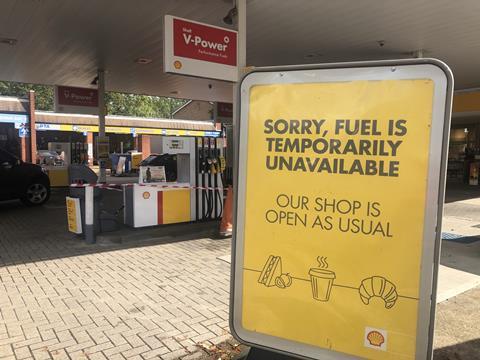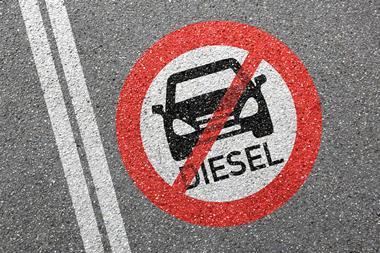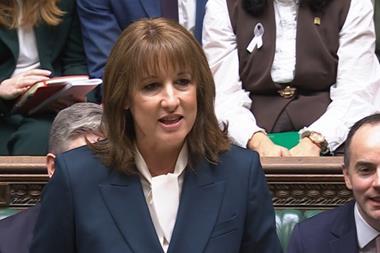PRA chairman Brian Madderson:
- Calls for an independent inquiry into the fuel crisis
- Highlights failed government intervention and inappropriate prioritisation
- Complains about chaotic delivery schedule under way following a lack of information sharing
- Believes officials do not have the ability nor the capacity to command and control a crisis such as this

An independent inquiry into the fuel crisis has been called for by PRA chairman Brian Madderson, as 12% of filling stations in London and the South East were revealed to be still dry, and 17 per cent had just one grade of fuel.
The PRA’s latest polling has also revealed that 71 per cent of filling stations in London and the South East have both grades, compared to 90% elsewhere in the country.
With a chaotic delivery schedule under way following a lack of information sharing, Madderson complained of failed government intervention and inappropriate prioritisation. He called for the re-imposition of competition law, and for Government officials to step back, as they had neither the ”ability nor the capacity” to command and control such a crisis.
“The recovery is simply not happening quickly enough,” stressed Madderson. ”We are into our 15th day of the crisis. There needs to be an independent inquiry into the crisis, so that motorists are protected from such acute fuel shortages in the future.
“The return to normal fuel volumes continues to be blighted by the current inept prioritisation policy. There is three times the capacity at filling stations per head of population in the rest of the UK compared to London and the South East. Together with the fact that there are more cars per household in London and the South East, this probably explains why filling stations in the region are running dry more quickly.”
He explained that London and the South East (as defined by Government) has 36% of the total GB population of 65.3 million (exluding Northern Ireland) crammed into a small corner. Stats reveal that while the UK as a whole has one forecourt per 6,700 people, London and the South East have one forecourt per 15,100 people, while London alone has one forecourt per 27,400 people.
“Since the Downstream Oil Protocol was invoked at 20:00 hrs on Sunday 26 September (more than 10 days ago), we understand that meetings have taken place between BEIS and specialist hauliers and oil companies,” said Madderson.
”These meetings were supposed to involve information sharing so that deliveries went to the areas where there were acute shortages. The independent dealer network (which numbers 65% of the total) has not had access to any of the information which was supposed to have been shared. We do not know when the deliveries are arriving and we do not know how they are being prioritised,” he stressed.
“The PRA wrote to BEIS to ask how the suspension of competition law would benefit our dealers and we have not yet received a reply. As things stand, we are yet to see any benefits arising from the suspension of competition law. Fuel supplies are being sent to the wrong parts of the country, giving oil companies an excuse not to fulfil the spirit of their contracts with our members.
“Our members in London and the South East are indignant that the fuel crisis persists for a 15th day, as a result of failed government intervention and inappropriate prioritisation. They report chaotic delivery schedules, including one case of a tanker having to return to the depot full because it had arrived at a filling station which had just been stocked.
“While we thank the Government for making available drivers from the military (which may in time feed through to increased supplies), suspending competition law has been a failed experiment. It is now time for the Government to step back, reimpose competition law, and restore market disciplines so that ordinary business incentives drive the fuel to the filling stations which need it.
”The lesson for us all may be that, however well-intentioned the Government is, regrettably, officials do not have the ability nor the capacity to command and control a crisis such as this.”

































No comments yet